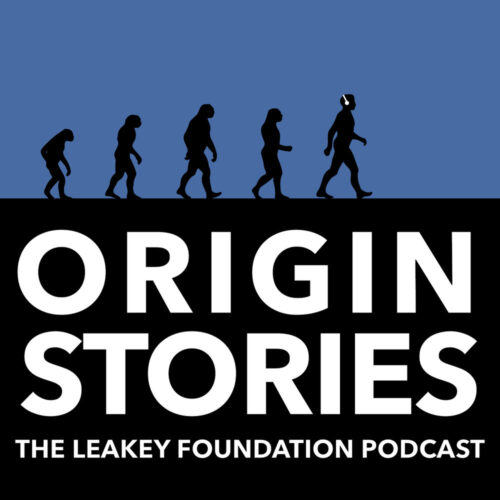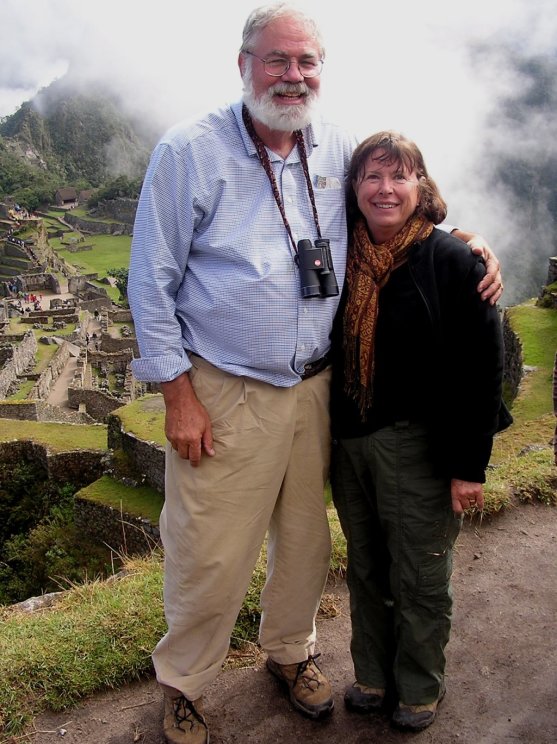Grants | The Leakey Foundation
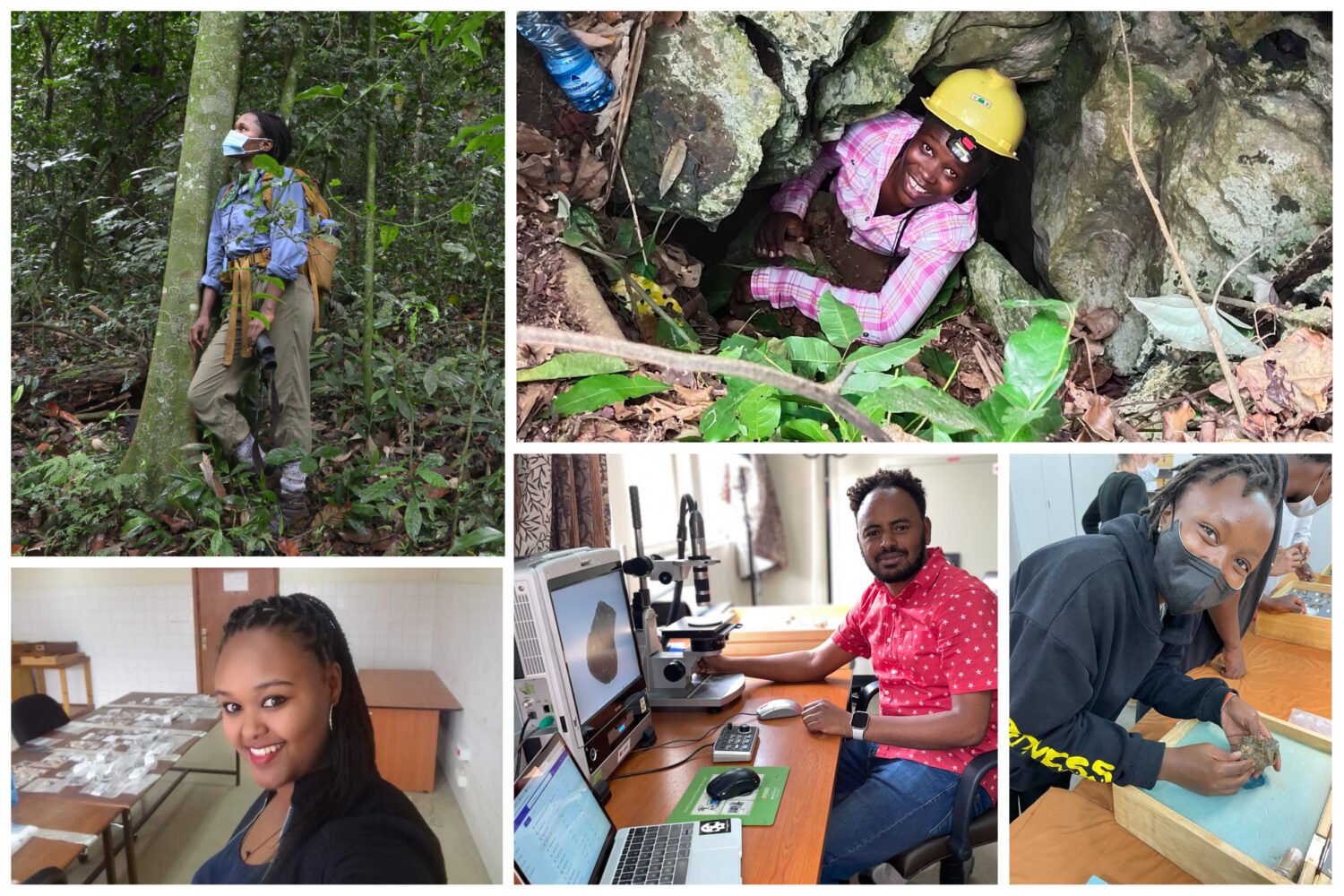
The Leakey Foundation is proud to announce the 2023 Baldwin Fellowship recipients.
The Franklin Mosher Baldwin Memorial Fellowship program was established by The Leakey Foundation in 1978 to expand access to advanced degrees for students from countries with limited educational opportunities. This prestigious program builds the future of human origins science by investing in outstanding scholars and helping them become leaders in their home countries. Successful applicants come to the program with strong academic records and remarkable dedication to their chosen fields.
The 22 new and returning Baldwin Fellows represent nine countries, 21 academic institutions, and a wide variety of scientific disciplines.
The Baldwin Fellowship is funded by generous support from Leakey Foundation donors.
Read on to learn about the 2023 Baldwin Fellows.
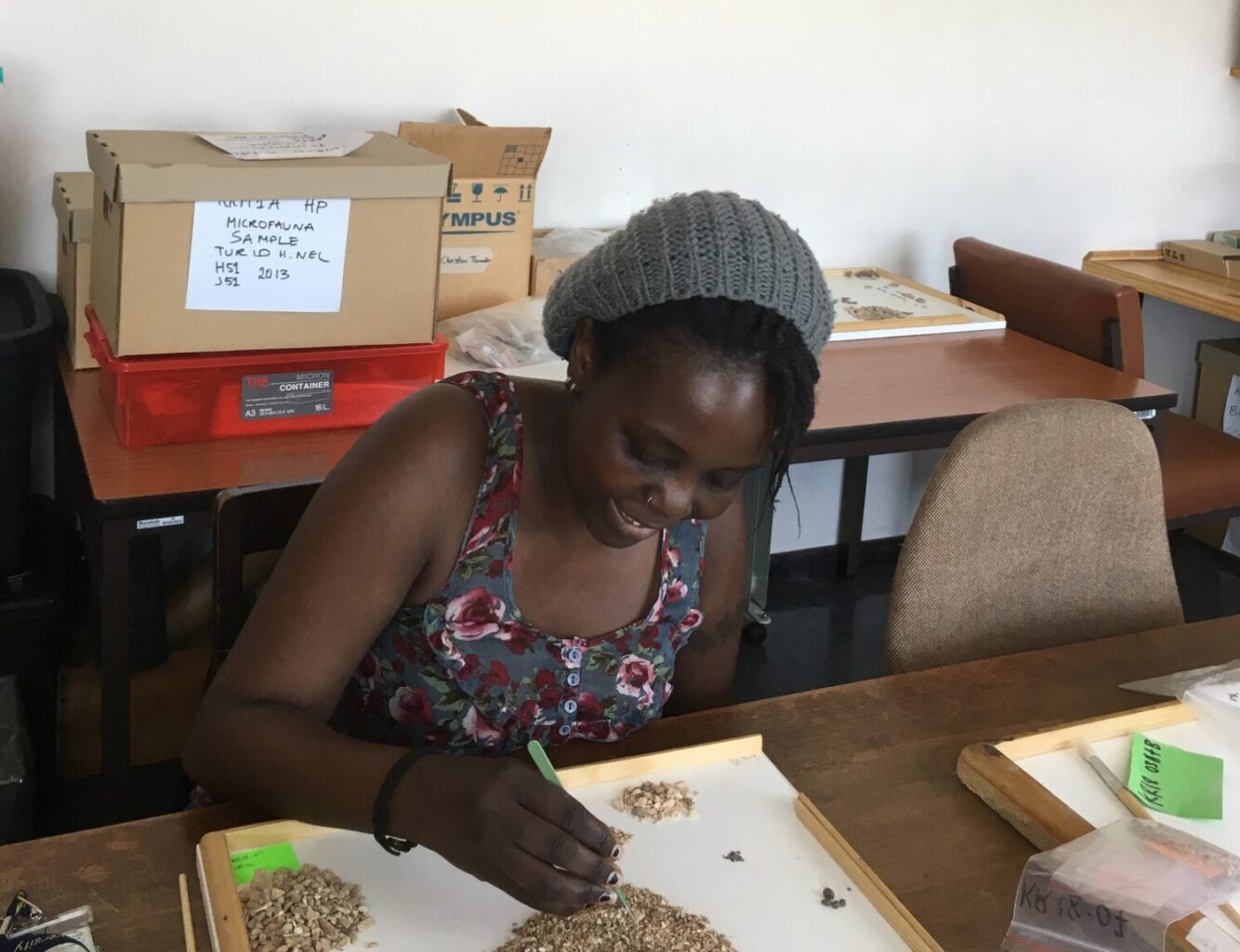
Pamela Akuku Achieng, Kenya
Pamela Akuku Achieng is pursuing a PhD at the Catalan Institute of Human Palaeoecology and Social Evolution (IPHES-CERCA) at the Rovira i Virgili University under the supervision of Dr. Palmira Saladié. For her doctoral research, she proposes a taphonomic and taxonomic study of Pleistocene fauna from Olduvai Gorge with the aim of reconstructing the paleoenvironment and understanding hominin and fauna relations, subsistence strategies, and site formation processes.
After earning her doctorate, she plans to return to Kenya to work at institutions such as the University of Nairobi, the National Museums of Kenya, or the British Institute of Eastern Africa. She would like to help ensure more African students are trained in archaeology and anthropology.
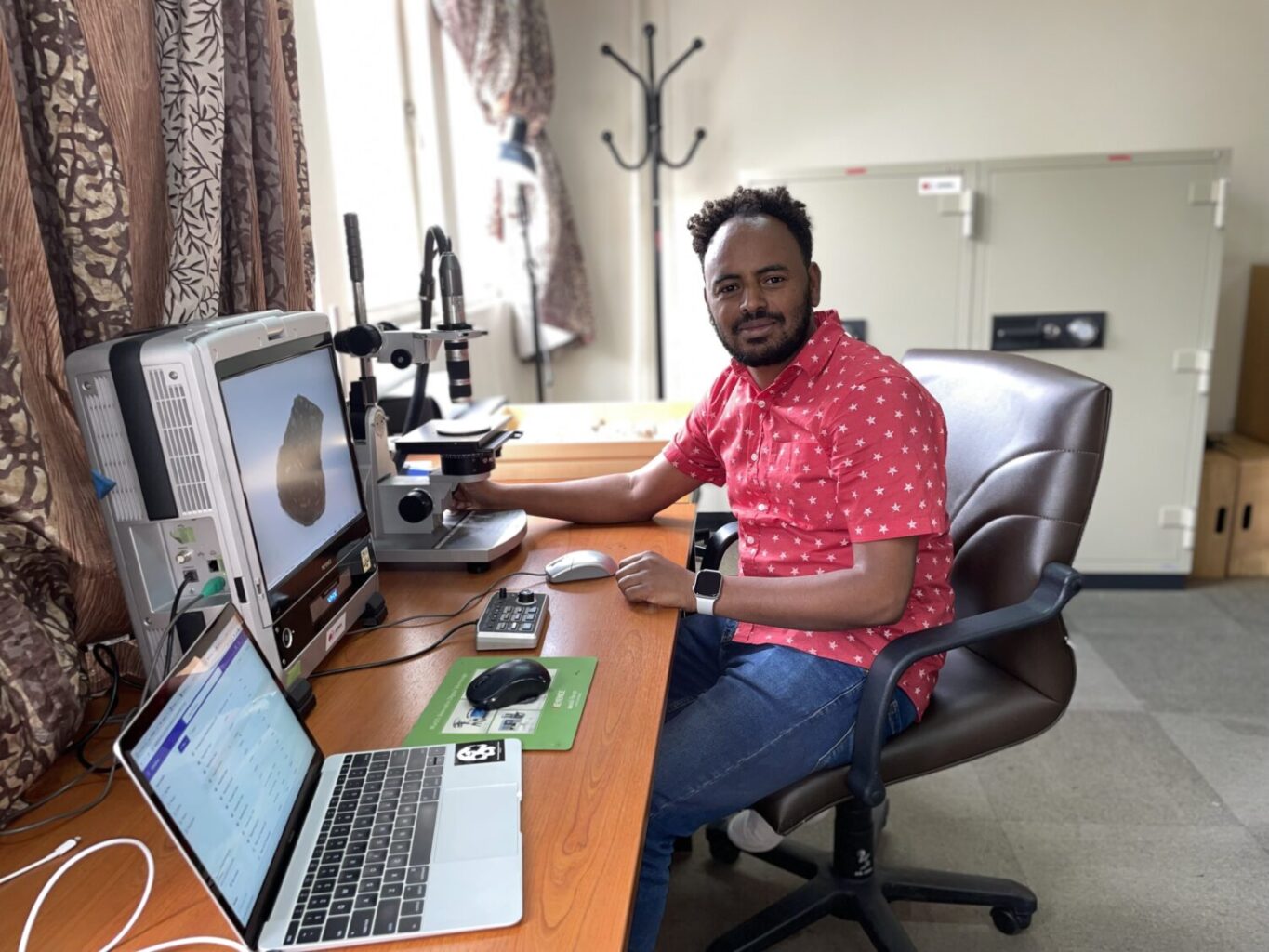
Yared Assefa, Ethiopia
Yared Assefa is a paleoanthropology curator and custodian of the Ethiopian hominin fossils housed in the Authority for Research and Conservation of Cultural Heritage(ARCCH) at the National Museum of Ethiopia, Addis Ababa, under the Ministry of Culture and Tourism of Ethiopia. In 2010 and 2016, he received his bachelor’s degree in applied biology and master’s degree in paleontology and paleoenvironment from Addis Ababa University. He has frequently participated in fieldwork activities, including archaeological and paleontological surveys and excavations.
Yared Assefa is pursuing a PhD at the University of Bordeaux in France. He aims to research palaeoanthropological collections from Ethiopia and contribute to understanding and preserving this important heritage.

Tefera Bayu, Ethiopia
Tefera Tarekegn Bayu is a PhD student at the Université Côte d’Azur in Nice, France in the Culture and
Environment: Prehistory, Antiquity, Middle Ages (CEPAM) laboratory.. He is also a staff member of Wolaita Sodo University’s (WSU) Department of Archaeology. Although he is currently on leave to pursue his PhD, he is a lecturer and research assistant and was the head of the Department of Archeology and Heritage Management at WSU.
His PhD research focuses on the interactions between humans and their environments from the Late Pleistocene to the Holocene, which he began to study during his Master’s research, which focused on charcoal from 10 sites in the Bale Mountains in Ethiopia. His dissertation study revisits the Bale material by combining it with archaeological charcoals collected from other sites in southern Ethiopia using
higher resolution microscopy and current comparative reference collections, but it also goes
beyond previous studies by putting a special emphasis on gathering and studying comparative
reference wood collections from southwest Ethiopia. His thesis is under the supervision of
Isabelle Théry-Parisot (PhD, HDR,) from CEPAM, Alexa Höhn (PhD) from Goethe
University Frankfurt, and Lamya Khalidi (PhD) from CEPAM).
After completing his PhD, his goal is to continue as an academic researcher in Ethiopian higher education and train a new generation of archaeologists.
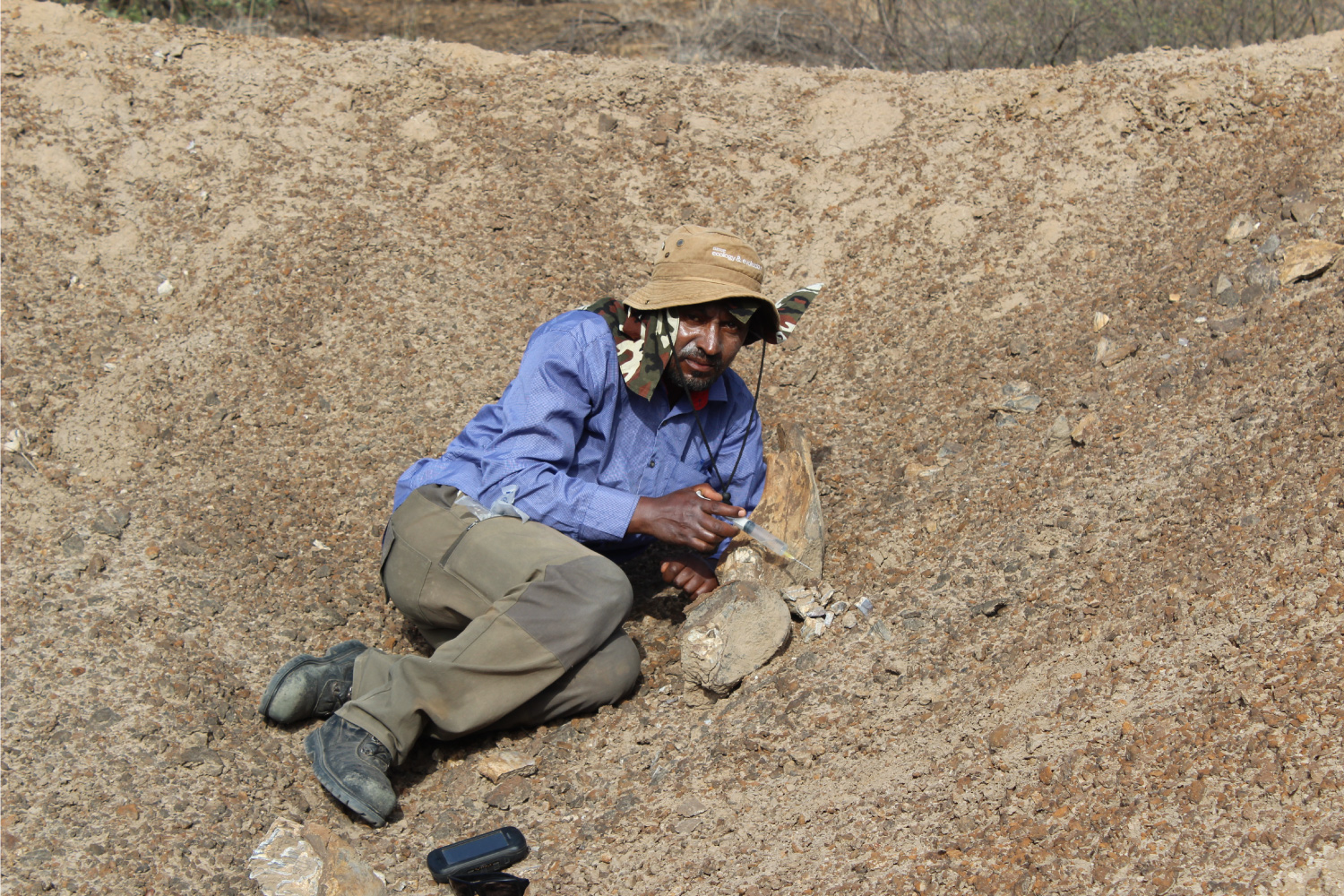
Tomas Getachew Bedane, Ethiopia
Tomas Getachew Bedane is a senior curator for the Authority for Research and Conservation of Cultural Heritage (ARCCH), the institution that manages and regulates laboratory and field research in Ethiopia. He is also pursuing his PhD with the Laboratory of PALEVOPRIM (Paleontology, Evolution, Paleoecosystems, Paleoprimatology) at the Université de Poitiers in France.
His PhD project focuses on the evolutionary history of Elephas recki, an extinct relative of the Asian elephant, and on its different evolutionary stages between 3 Ma and 1 Ma. His research will explore ecological correlations among different hominin-bearing localities in central and eastern Africa.
After he completes his PhD, his goal is to return to ARCCH/National Museum of Ethiopia and greatly expand his role. In addition, since undergraduate and graduate training in paleontology, paleoanthropology, and paleoecology is very limited in Ethiopia, he plans to teach new courses at Ethiopian universities and mentor students through hands-on research at the National Museum of Ethiopia.
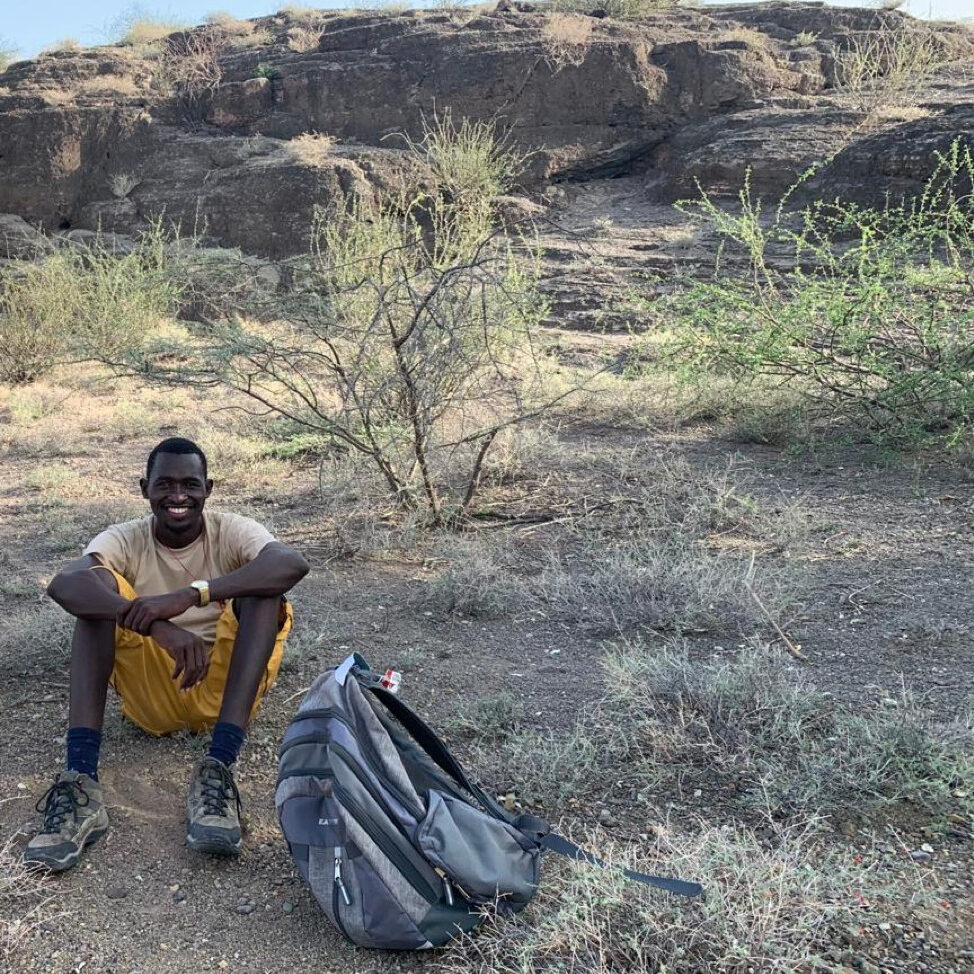
Aoron Eipa Emmanuel, Kenya
Aoron Eipa Emmanuel received his master’s degree from Turkana University College in Kenya in 2022. He has been involved in a research project at the Topernawi site in Kenya since 2019–a site which holds special meaning for him as it is located in the heart of his family’s ancestral home near the Topernawi sand river. His family are semi-nomadic pastoralists who had no financial means to send him to primary or secondary school, making Emmanuel the only one in his family to seek formal education. He supported himself through a combination of scholarships and work, including work as a high school biology and chemistry teacher.
Emmanuel is attending Harvard University as a special graduate student, where he is included in the Harvard Research Scholar Initiative. After graduating, he hopes for an academic position in Kenya, where he can lead research and promote evolutionary concepts to the next generation.
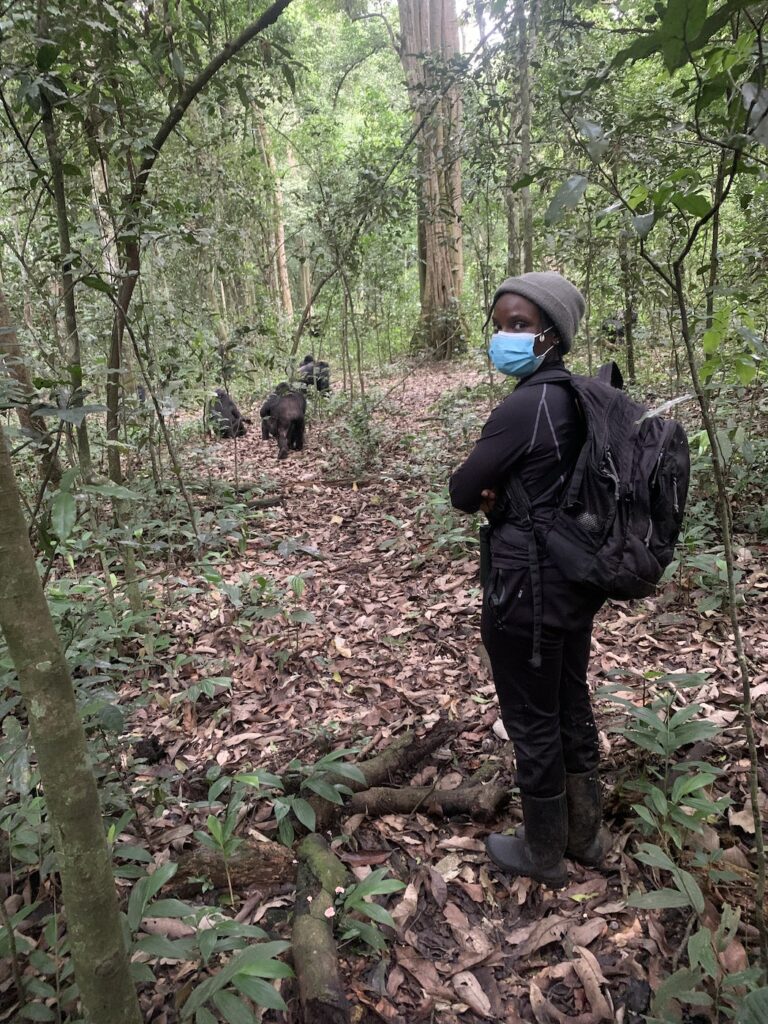
Salmah Jombela, Uganda
Since August 2021, Salmah Jombela has been working with the Ngogo Chimpanzee Project to habituate a new chimpanzee community for tourism and research at Buraiga in Kibale National Park. She follows chimpanzees for 10-12 hours every day and leads a team of three field assistants who collect data on the chimpanzees. Thus far, she has identified more than 60 chimpanzees and named about 30 of them. She has also been collecting information about the feeding and ranging behavior of the Buraiga chimpanzees. She has trained the field assistants on how to identify chimpanzees, collect data, identify trees, and navigate the forest using GPS devices and compasses. She also shares knowledge about chimpanzee ecology and behavior with team members and ensures that the safety protocols to protect the chimpanzees against anthroponotic disease transmission are followed. This experience has been especially rewarding, and she has made tremendous progress habituating the Buraiga chimpanzees.
Salmah has chosen to pursue a master’s degree in zoology at Makerere University in order to gain knowledge in animal ecology and behavior as a means to develop her skills for primate research. In her proposed study, she will investigate a possible fission event that may have occurred between the neighboring Buraiga and Kisonje chimpanzee communities in Kibale National Park.
It is Salmah’s goal to obtain a teaching position at a university in Uganda working in a primatology-related field. She would like to share her knowledge with a new generation of dedicated Ugandan primatologists.
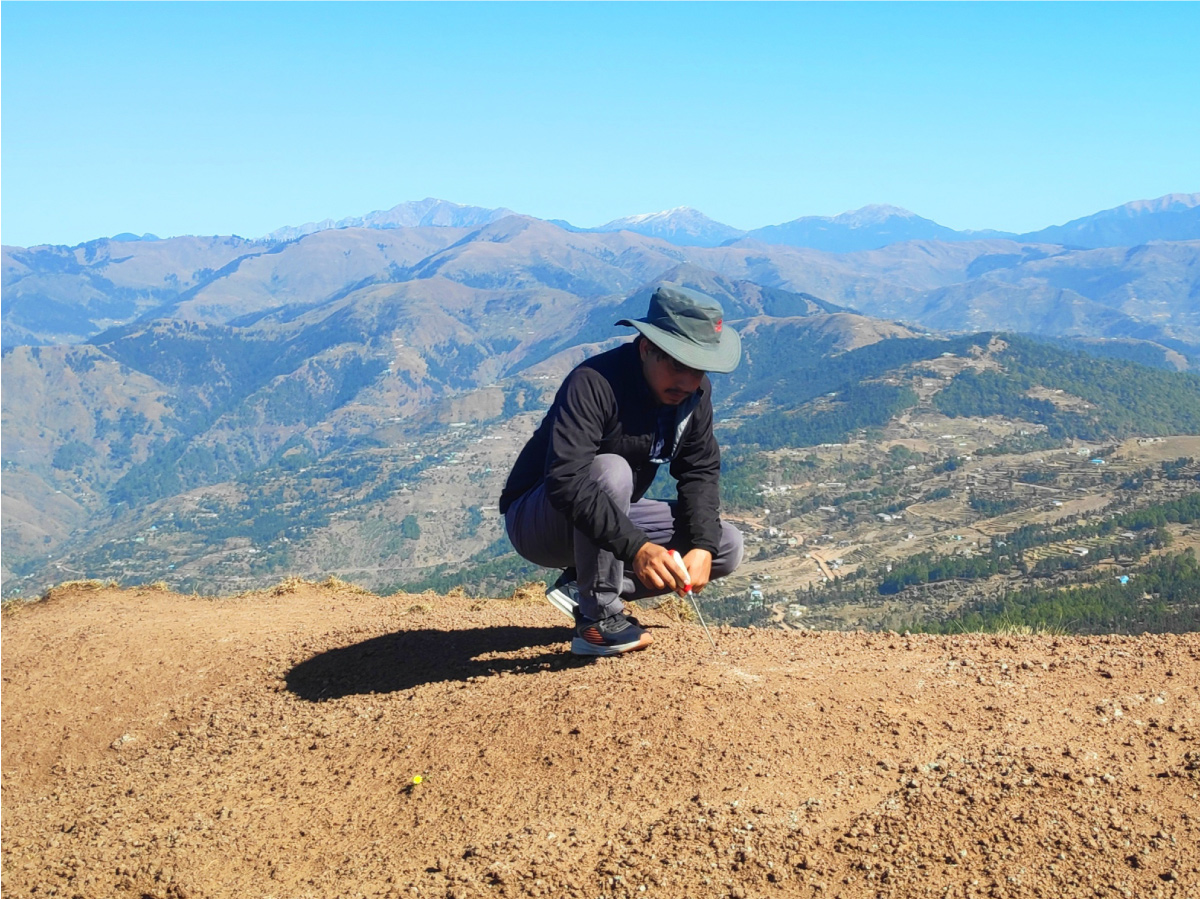
Rohit Kumar, India
Rohit Kumar’s interest in paleontology research was sparked when he had the opportunity to participate in fieldwork with Indian paleontologist Prof. Rajeev Patnaik. Prof. Patnaik now serves as his Ph.D. supervisor at Panjab University Chandigarh. During his fellowship visit to the United States, Kumar will have access to various museums for comparative studies of fossils and will learn about methods such as 3D geometric morphometry and phylogenetic analysis.
Kumar’s Ph.D. research is ongoing in Siwaliks of Haritalyangar, Ramnagar, and foreland basin Kutchh (GJ), India. These sites are well known for their primate and other fossil assemblages, and they are crucial in understanding the evolution and biogeography of many mammalian groups. After obtaining his PhD, he intends to pursue a career in academia, preferably as an assistant professor or postdoctoral researcher.
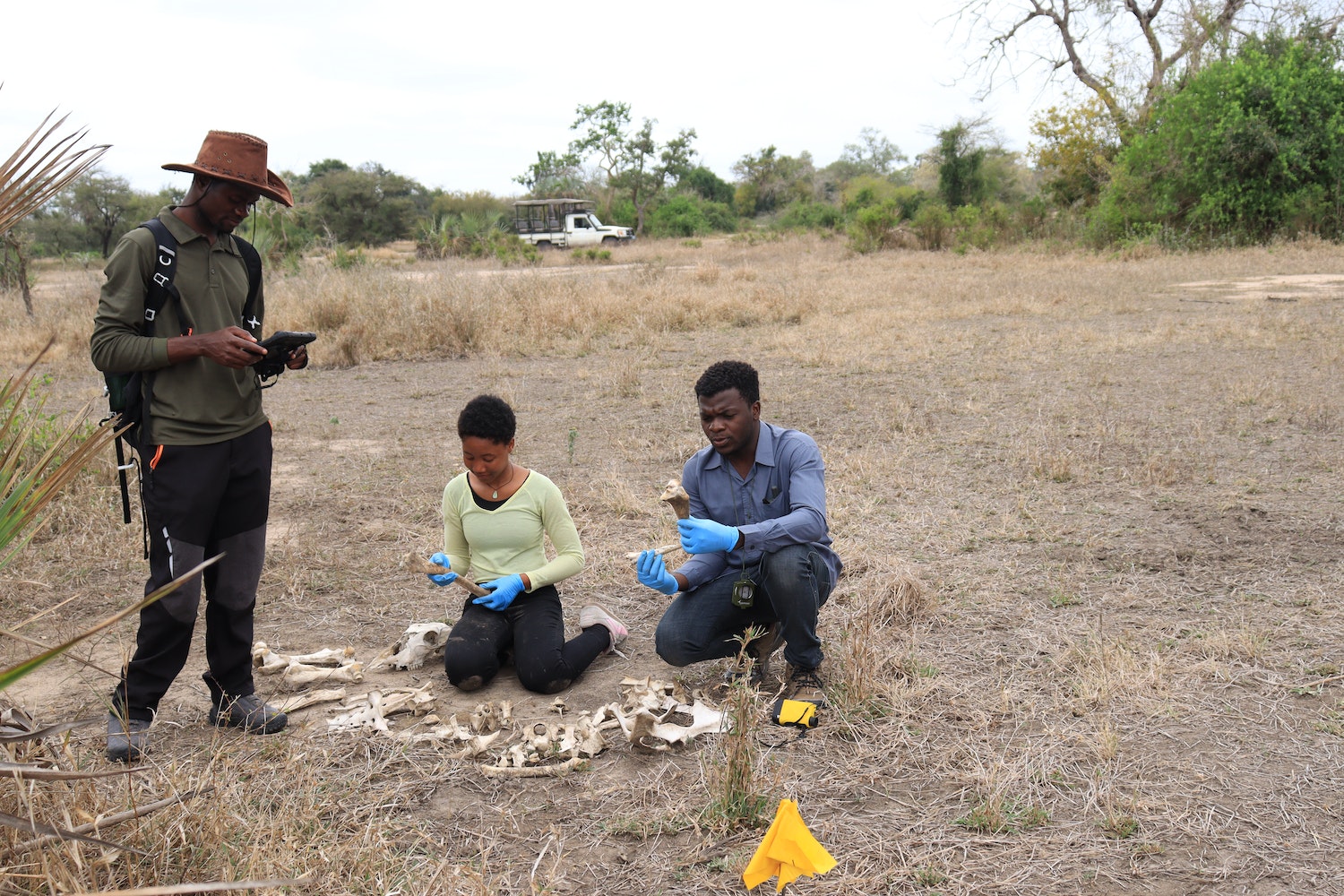
Jacinto Mathe, Mozambique
Jacinto Mathe is a third-year PhD student in Anthropology at Oxford University, focused on reconstructing and understanding human evolution and past environments. His research involves doing surveys and collecting osteological samples across different habitats in Gorongosa National Park, Mozambique, where he also carries out ecological analyses of modern bones.
Before pursuing his PhD, he received a bachelor’s in Veterinary Sciences at Eduardo Mondlane University, Mozambique, followed by a master’s degree in forensic anthropology from the University of Coimbra, Portugal. After obtaining his PhD degree, he aims to continue working at Gorongosa National Park. He may also teach at Eduardo Mondlane University to help open the way for other Mozambicans who wish to study human evolution.

Seminew Mogesie, Ethiopia
Seminew Asrat Mogesie is an archaeologist in the Authority for Research and Conservation of Cultural Heritage (ARCCH) in Ethiopia, where his job involves research and conservation of archaeological records. In this capacity, he collaborates with international scholars conducting archaeological and paleoanthropological expeditions in Ethiopia and elsewhere.
Seminew holds a special interest in understanding ancient humans, climate, and the environment. He is pursuing a PhD under the supervision of professor Enza Spinapolice of the Sapienza University of Rome.
He aspires to become a successful professor and researcher in the discipline of human prehistory. He plans to develop a field research project in Ethiopia where he can boost public awareness, locate new fossil and archaeological sites, and train students to work alongside scholars from various disciplines.

James Munyawera, Rwanda
James Munyawera is a researcher with five years of practical experience in protection, monitoring, and research of mountain gorillas. He strongly believes in the important role science-based conservation plays in finding solutions for pressing conservation concerns, such as the impact of climate change on endangered animals and their habitat.
Munyawera’s master’s thesis will validate a novel non-invasive technique for quantifying thermoregulatory effort in wild mountain gorillas to help inform models of the effect of climate change on this endangered, large-bodied, and restricted-in-distribution primate. Infrared thermal imaging will reveal how gorilla body surface temperature changes with environmental conditions and how these changes relate to energetics and autonomic nervous system activation.
This project will help form a new collaboration between Bangor University and the Dian Fossey Gorilla Fund in studying how folivorous primates of contrasting body sizes may cope with climate change and other types of anthropogenic disturbance.
Christina Mutinda, Kenya
After completing of her bachelor’s degree in anthropology and human ecology, Christina Wandia Mutinda sought a volunteer opportunity at the National Museums of Kenya (NMK). Working at the NMK as a volunteer and later as an intern piqued her interest in researching the environments in which early humans evolved. With this in mind, in 2021, she enrolled in a master’s program at the University of Dar es Salaam to study archeology.
During her second year in the program, Christina’s research will focus on understanding the paleoenvironmental/paleoecological contexts associated with how early humans evolved. She will analyze bovid dental materials from Todenyang in West Turkana, Kenya, which were collected by Dr. Fredrick Manthi of the National Museums of Kenya between 2012-2014. Dental calculus, which entombs micro botanical remains such as phytoliths and pollen, will be extracted, processed, and analyzed to give an aggregate of plant species, which will then determine the paleodiets and thus infer the past environments in which early hominins evolved.
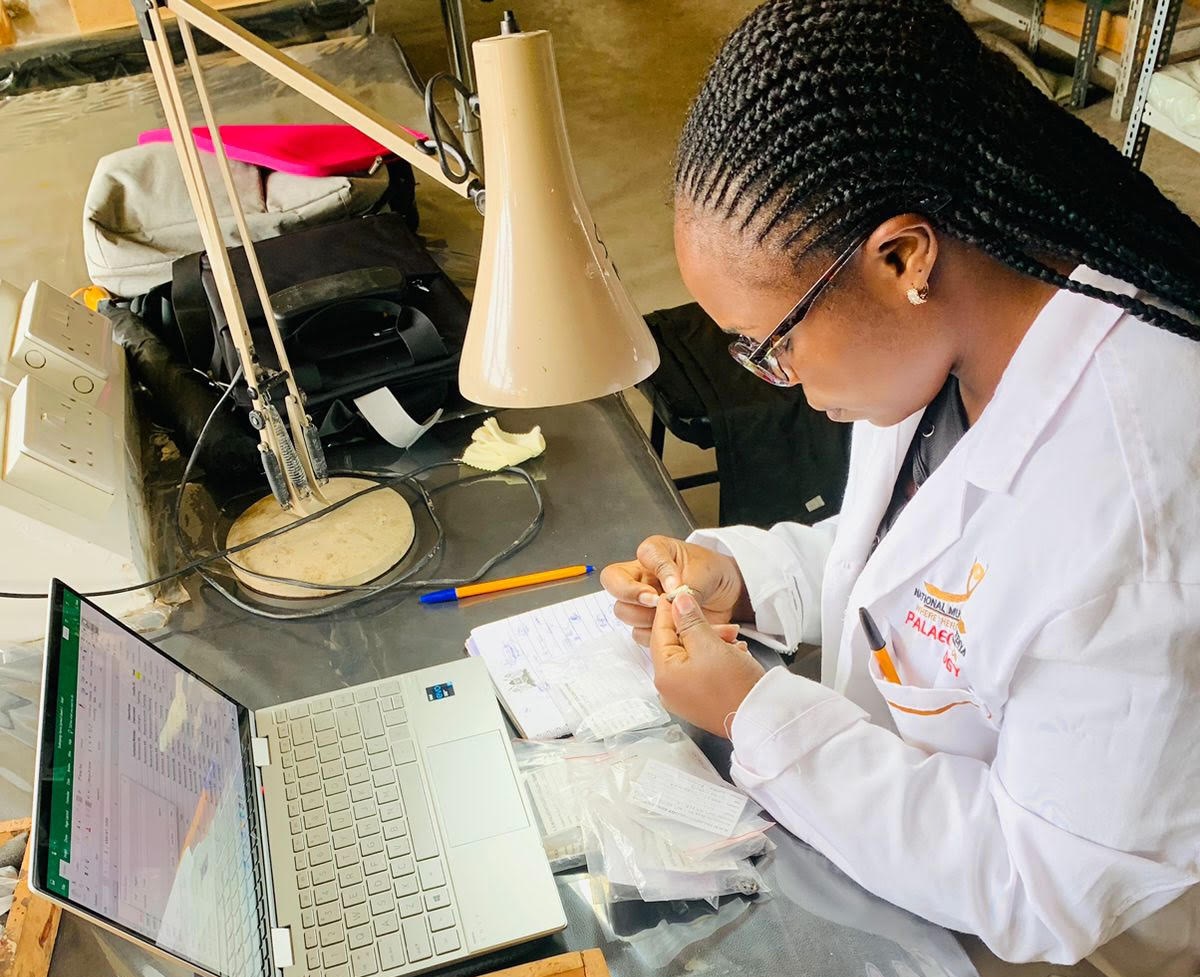
Aloyce Mwambwiga, Tanzania
While a senior curator with the National Museums of Tanzania, Aloyce Mwambwiga enrolled in a PhD program at the University of Calgary in Canada. His dissertation research focuses on paleoenvironmental reconstructions utilizing phytoliths from sediments. Like many other scholars, he endured two years of delays due to COVID-19. He traveled to the field, Olduvai Gorge, for four months in 2022 to catch up. Mr. Mwambwiga applied for the Baldwin Fellowship in order to return to the field to finalize his data collection and write his dissertation.
After receiving his PhD, Aloyce Mwambiwiga hopes for a position as a researcher, scientist, and curator in his home country while continuing to work with international colleagues and institutions.
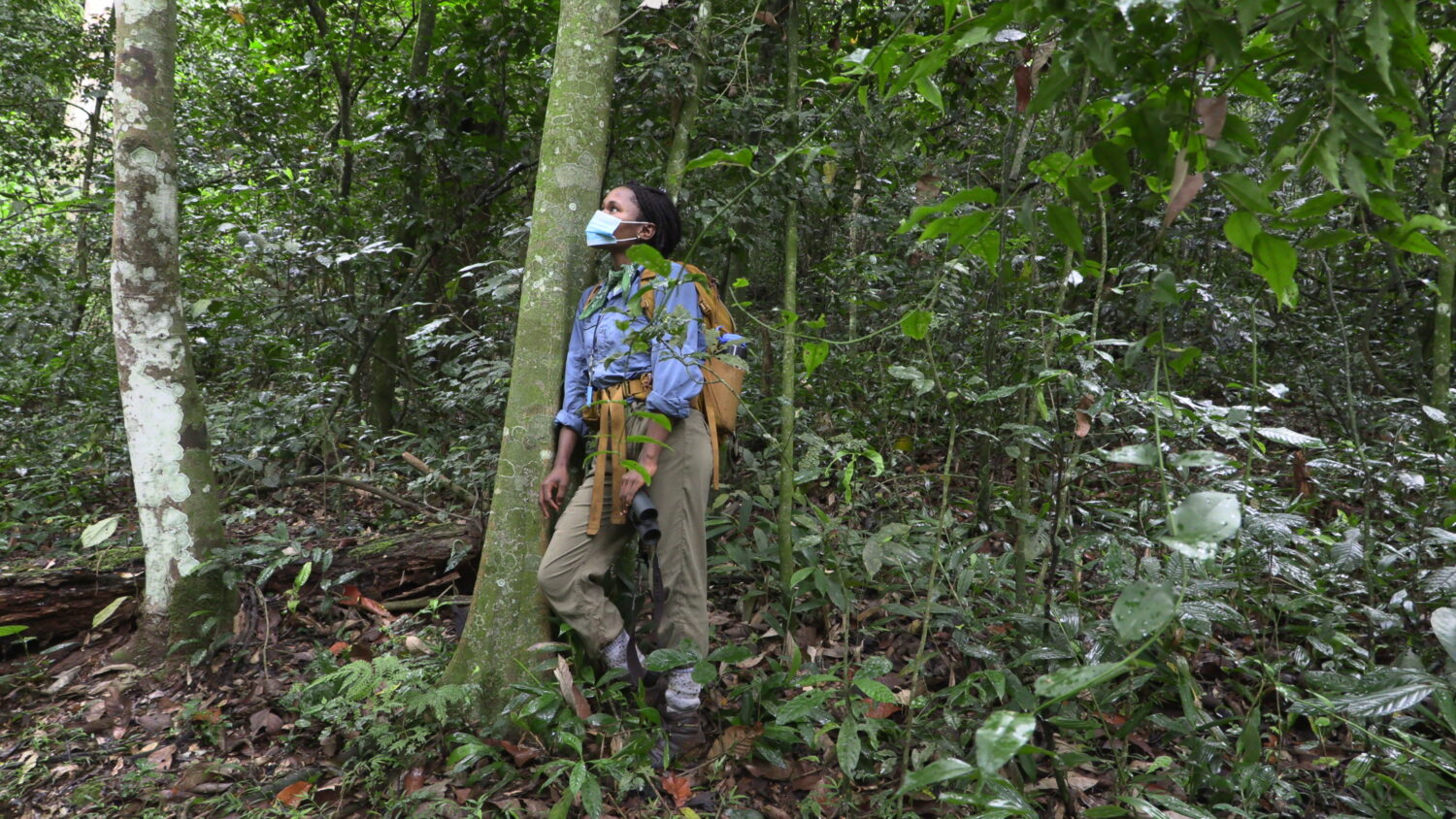
Sharifah Namaganda, Uganda
Sharifah Namaganda is pursuing a PhD in anthropology at the University of Michigan. Her research focuses on the locomotor and postural behavior of wild chimpanzees. Her career goal is to be actively involved in primatological research with a position in academia. Uganda is rich in primate life, but there are no opportunities to take a primate biology course at any level of education. Her determination to incorporate primatology into the Ugandan university curriculum contributes significantly to her decision to pursue further training in anthropology. After her training in the USA, she hopes to work with faculty from Makerere University’s Zoology Department to incorporate primatology classes into the curriculum and provide undergraduate and graduate student research mentorship to interested students.
She hopes to inspire more Ugandans to study primates and build a network of people who understand primate biology and are motivated to help conserve the animals.
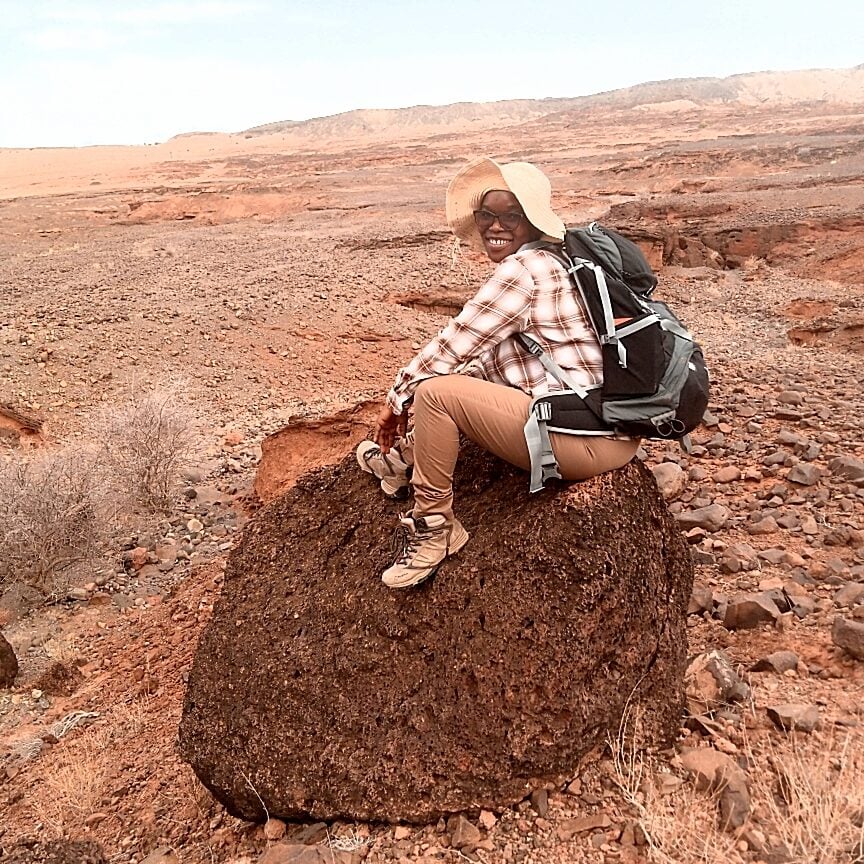
Everlyne Omondi, Kenya
Everlyne Omondi is a PhD student at the University at Albany in the Paleobiology Lab. She completed her BS in zoology from Maasai Mara University and earned an advanced certificate in paleoanthropology from the Turkana Basin Institute. Her graduate work will focus on the analysis of late Miocene taxonomic and ecological turnover in large mammal faunas from eastern Africa. She has participated in several fieldwork expeditions in the Turkana Basin, focusing on the late Cenozoic geology and paleontology of the region. Omondi also held multi-year intern positions for paleontology and paleoanthropology collections housed at the National Museums of Kenya in Nairobi and the Turkana Basin Institute in Iliret.
Eve plans to come back to Kenya as an established researcher and mentor African students aspiring to pursue a career in paleoanthropological sciences, as there are few paleoanthropologists in Kenya.
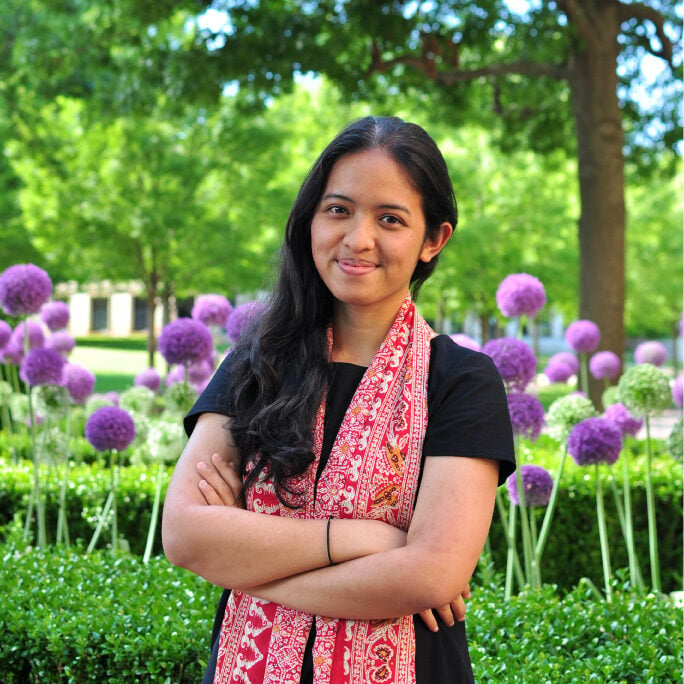
Putu Pujiantari, Indonesia
Putu Mas Itha Pujiantari is a PhD student at the University of Arkansas. She hopes to better understand how environmental change today impacts primate food choice, with implications for conservation and understanding the evolution of past primate communities over deep time. The specific questions she’d like to work on involve dietary responses to anthropogenic environmental stressors, including direct impacts, such as forest fires and other habitat loss, and indirect ones, such as global warming and extreme weather events.
Her studies so far have given her the chance to learn dental microwear analysis techniques not available in Indonesia. She expects to learn many more new approaches to studying primates in the coming years in Arkansas and in the field when she conducts her dissertation research. She plans ultimately to bring this knowledge home to Indonesia to help train the next generation of Indonesian primatologists with a broader understanding of primate ecology and its evolutionary context.
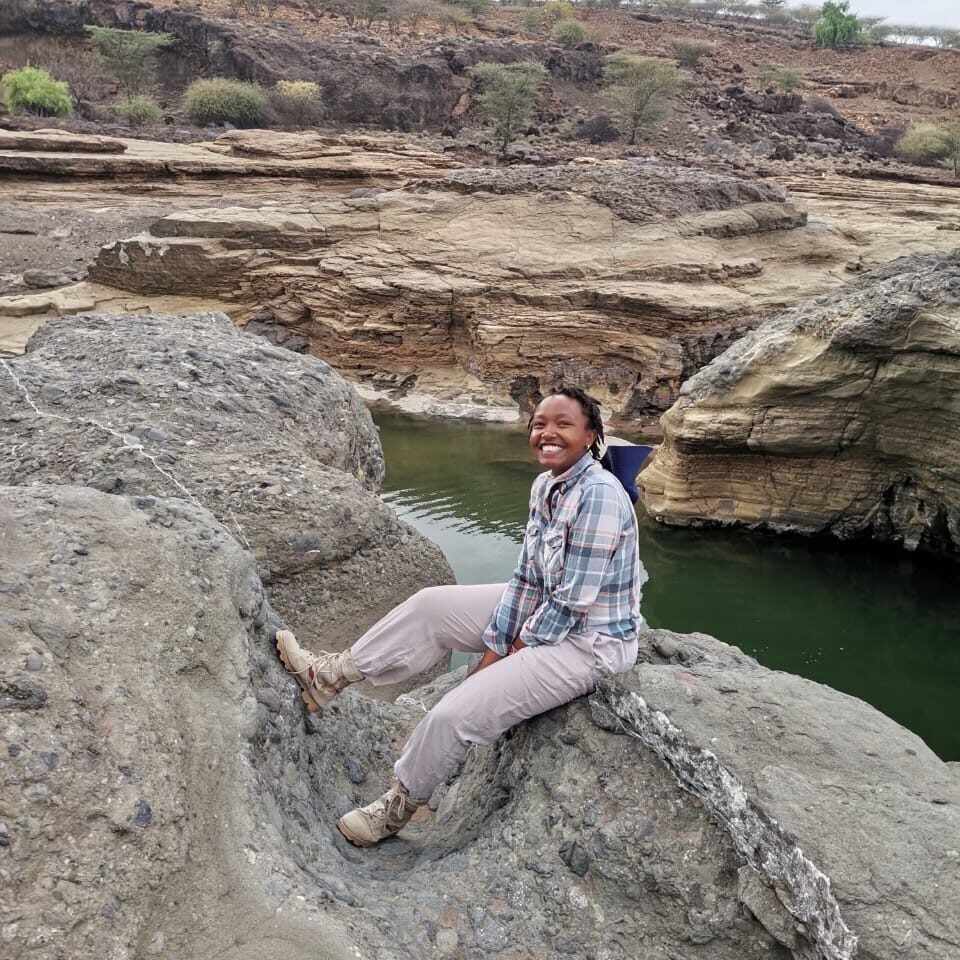
Linet Sankau, Kenya
Linet Sankau is currently working on her master’s degree at the newly-founded Human Evolutionary Biology Master’s Program at Turkana University College. After graduation, she will pursue her PhD in the Anthropology PhD Program at Arizona State University as an affiliated graduate student with the Institute of Human Origins (IHO).
She will be advised by Chris Campisano and Denise Su, as their research focusing on the paleoecology and environmental context of early hominin environments in eastern Africa complements her interests.
Linet Tito Sankau’s primary goal in pursuing a PhD in Evolutionary Anthropology at ASU is to establish herself as a research-active paleoanthropologist and contribute to new and ongoing efforts of establishing multi-disciplinary human origins programs in Kenyan universities and institutions. She hopes to raise public awareness of Kenya’s rich fossil treasures that are critical to answering questions about human and primate evolution. She hopes to work as a professor at a Kenyan university where she can mentor students with the goal of producing a new generation of Kenyan paleoanthropologists.

Haftom Berhane Taezaz, Ethiopia
Haftom Berhane Taezaz is pursuing a PhD at the University of the Witwatersrand, where he is conducting a comparative study of lithic collections from the National Museum of Ethiopia and McGregor Kimberley Museum, South Africa, in hopes of better understanding the technological strategies and patterns of Early Acheulean hominin adaptation
Currently, he has a permanent position in the Ethiopian Heritage Conservation Authority as an archaeology and paleontology researcher, and he plans to return there after he has finished his training. He plans to continue his research work in Ethiopian archaeological sites and museum collections as an independent researcher in collaboration with other research institutions.
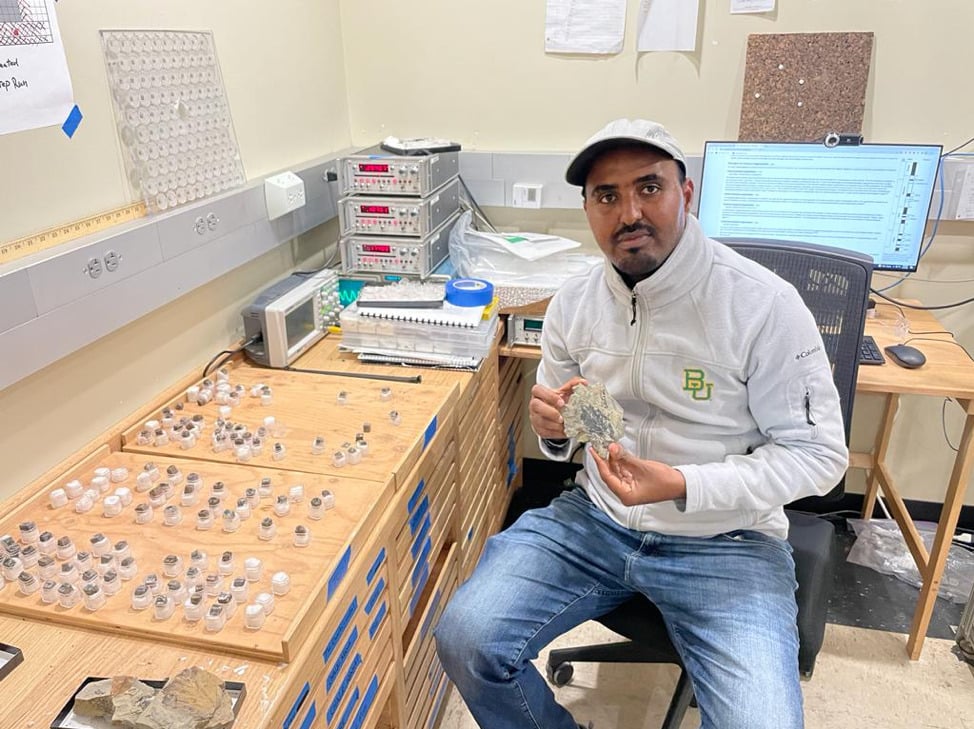
Kahsay Nugsse Tesfay, Ethiopia
Kahsay Nugsse Tesfay is pursuing a PhD in geoscience at Baylor University. His research focuses on the geological and tectonic history of rifts. He plans to use this information to support studies of early hominid evolution and human fossil archives in Eastern Africa. In his work at Gona in Ethiopia, his research will make it possible to assess how hominids interacted with their environment and evolved through time. He is passionate about paleomagnetic investigation and feels that too little attention has been paid to the questions on which he is focused. He believes that the research he proposed to conduct at Gona will not only be interesting and rewarding, but will also give him the experience in the field necessary to apply toward his goal of becoming an academic professor and researcher who focuses on scientific research problems in Eastern Africa.
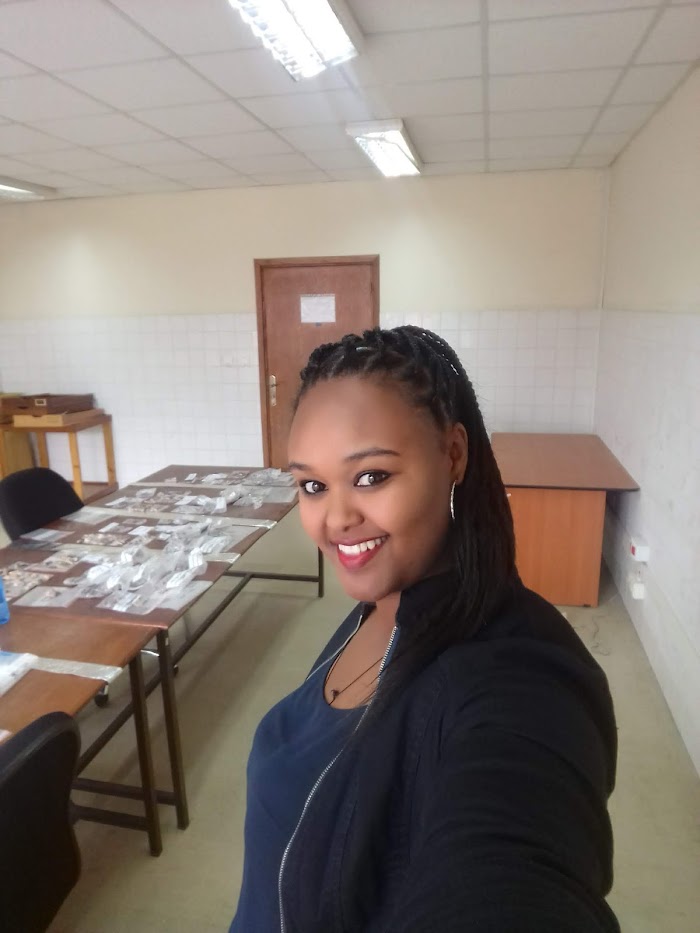
Michaela Zewdu Tizazu, Ethiopia
Michaela Zewdu Tizazu is currently enrolled in the second year of her PhD program in Archaeology at the University of Florida’s Anthropology Department. Her goal as a PhD student is to obtain a doctorate degree in the archaeology of the Horn of Africa so that she can contribute to a better understanding of why, how, and when anatomically modern hunter-gatherers learned the technological and social skills necessary to survive and eventually flourish during the highly variable climatic and environmental conditions of the Late Pleistocene period. After earning her PhD she plans to return to Ethiopia where she can secure a university position and teach courses on the human evolution and bridge the pervasive gender gap that exists in the academic field of archaeology in her home country of Ethiopia.
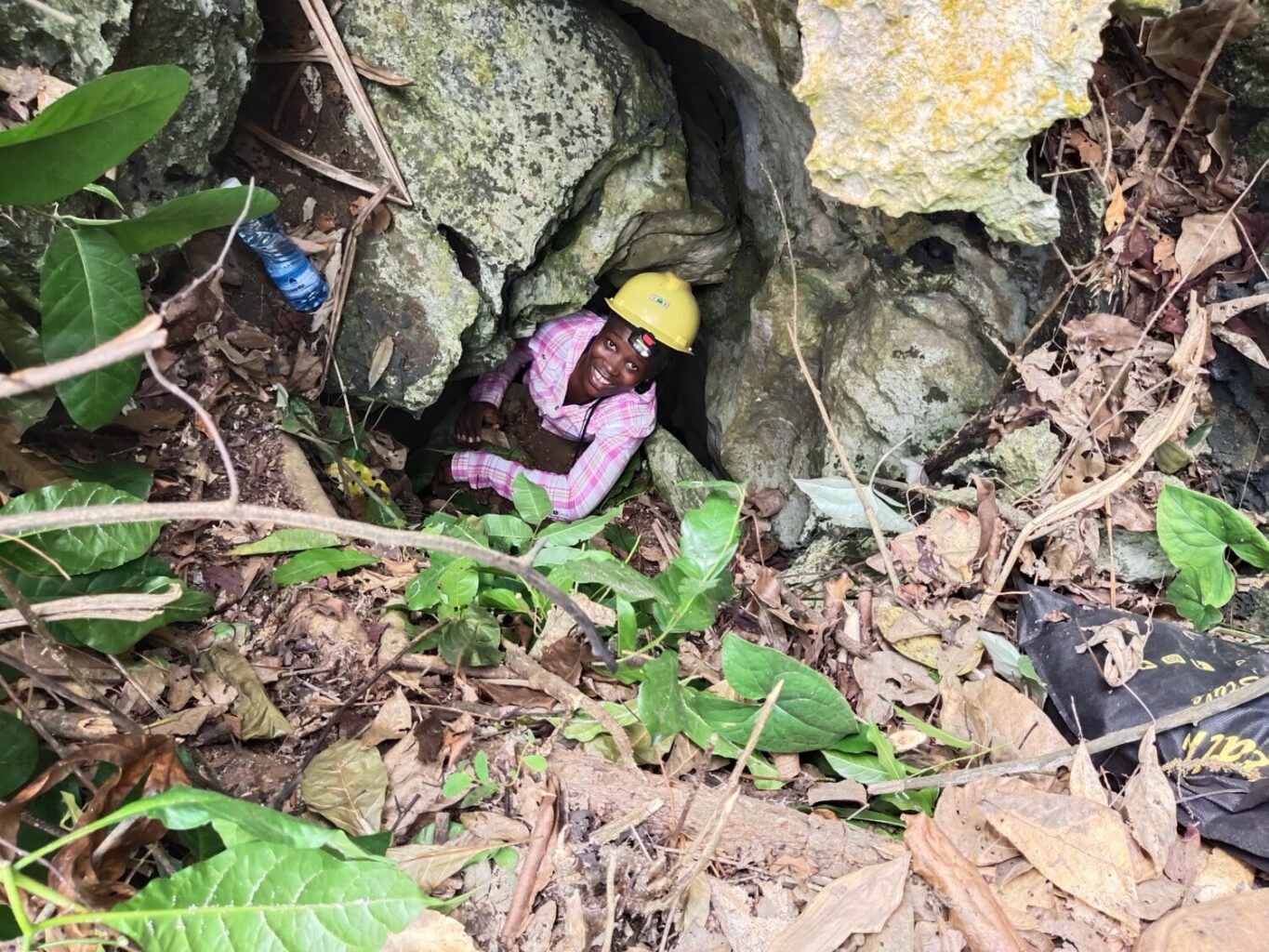
Sylvia Wemanya, Kenya
Sylvia Wemanya is a first-year graduate student pursuing a PhD study program in anthropology at Rice University. She is interested in the social and ecological factors that drive human societies and how human activities can also shape local ecology. She is especially interested in the origins of diverse human diets and how ecology and cultural choices shape diet. Her prior field experience in Kenya, and especially at Koobi Fora, shaped her interest in the intersection of environment and human behavior.
Her doctoral research will be carried out via fieldwork in Kenya and collections research at the National Museums of Kenya and will be supervised by Prof. Mary Prendergast. The research will combine archaeological fieldwork, zooarchaeology, lipid residue analysis, and ethnographic analogy in order to understand changes in fisher-hunter-gatherer and pastoralist cuisine across the major climatic and cultural shifts of the Holocene.
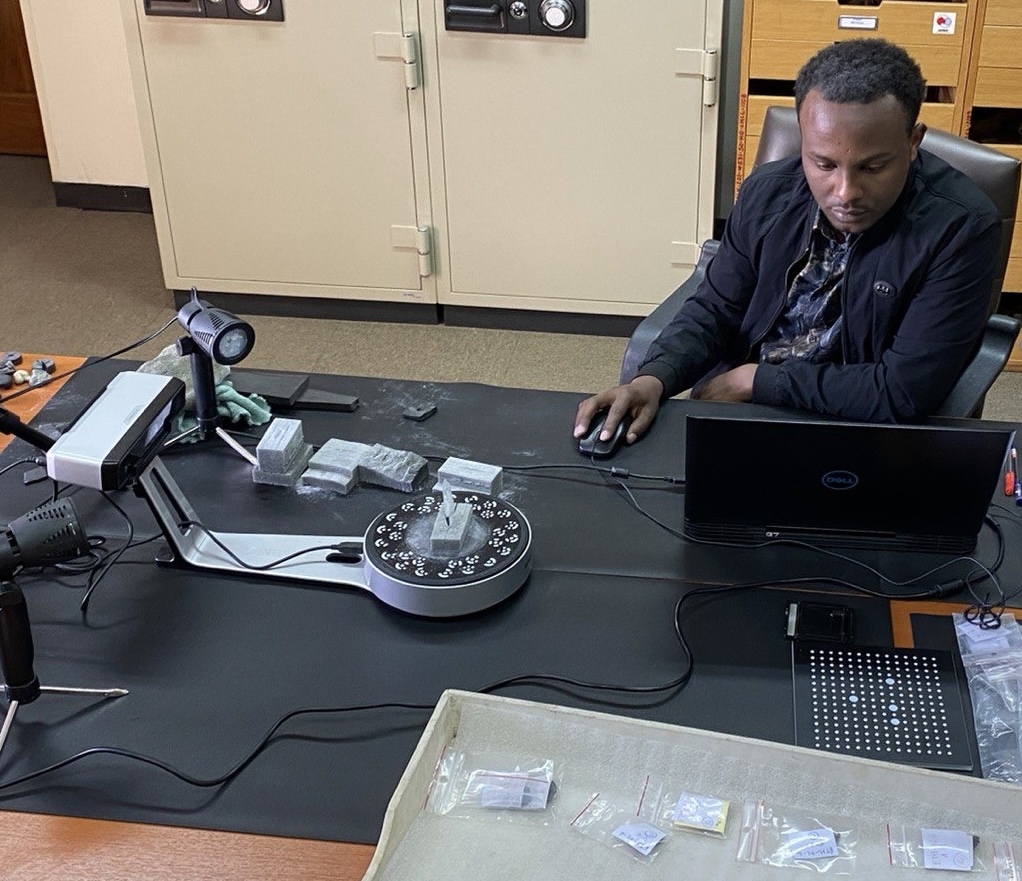
Misganaw Gebremichael Woldetsadik, Ethiopia
Misganaw Gebremichael Woldetsadik was inspired to pursue a PhD from the University of Bordeaux after working as a junior archaeology researcher at the Authority for Research and Conservation of Cultural Heritage (ARCCH) at the National Museum of Ethiopia. His home country, Ethiopia, is pivotal for the study of human evolution. However, fast-growing developmental activities are threatening heritage sites, and there is a critical lack of home-based researchers, PhD programs, and trained personnel to study and tackle these important conservation issues.
His PhD research will focus on early Homo sapiens material culture through the study of stone tool assemblages held in the collections of the National Museum of Ethiopia. He will also participate in future fieldwork in the Middle Awash and Shungura Formation.
His goal is to become a researcher in his current home institution and to teach prehistoric archaeology to the next generations of students at Addis Ababa University.
Sema Yilmaz, Turkey
Sema Yilmaz earned two master’s degrees at Istanbul University, one in anthropology and one in climate change studies, focused on the impact of climate change on trees in the habitat of western chimpanzees. Yilmaz is now pursuing a PhD at the University of Oulu in Finland. Her dissertation will center on unstudied and unpublished small mammal fossils from the Dawaitoli Formation in the Afar region of Ethiopia.
Her long-term plan is to return to her home country to train a sufficient number of students to play important roles in paleoanthropology and archaeology.

